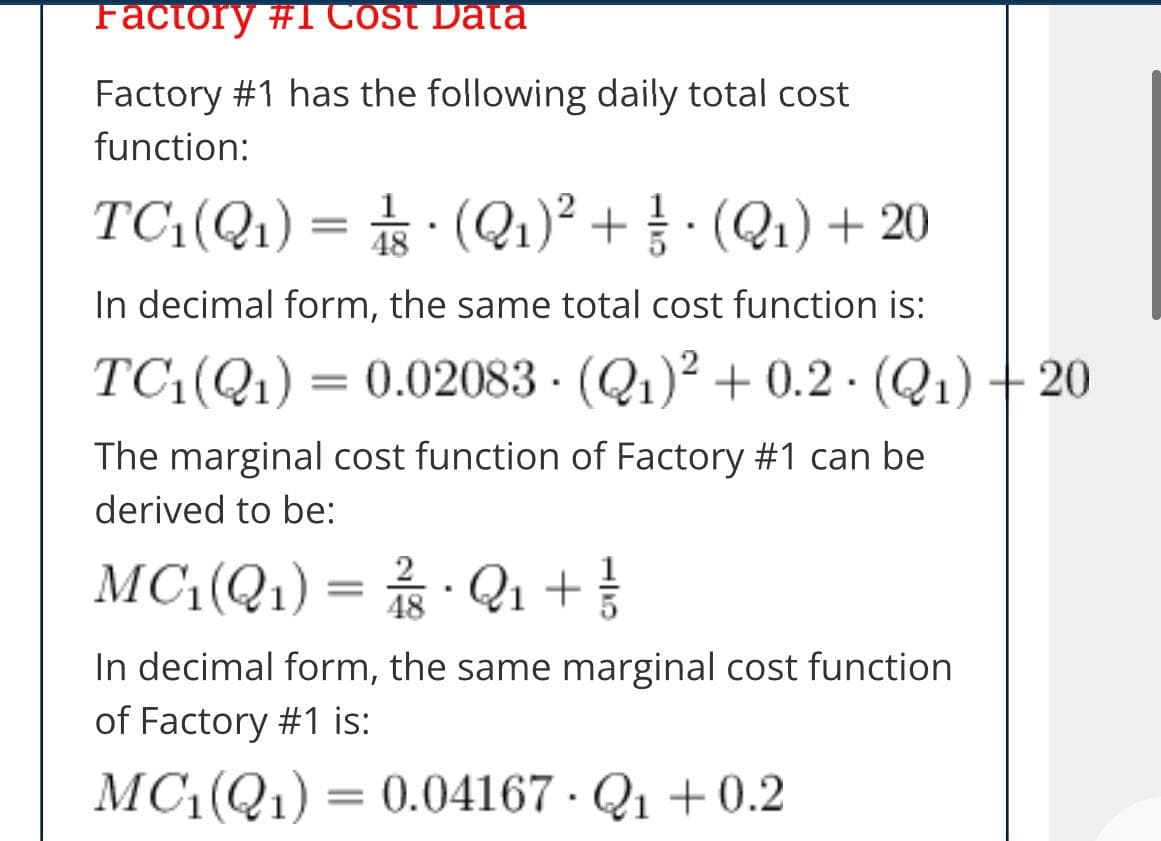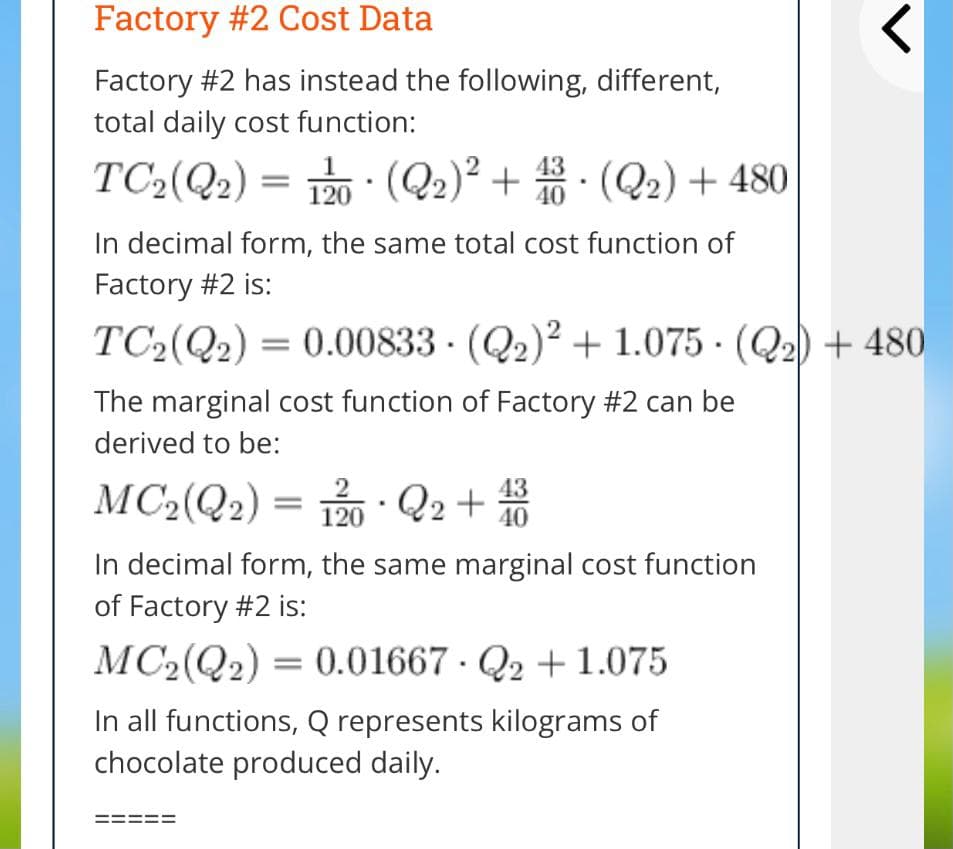You manage two chocolate factories. Using only these two factories, you must produce exactly 420 kgs of chocolate daily at lowest possible cost. Mathematically, you have: Q1 = Quantity produced at Chocolate Factory #1 Q2 = Quantity produced at Chocolate Factory #2 Daily total overall production: Q1 – Q2 = 420 At present, each factory produces half the
You manage two chocolate factories. Using only these two factories, you must produce exactly 420 kgs of chocolate daily at lowest possible cost. Mathematically, you have:
Q1 = Quantity produced at Chocolate Factory #1
Q2 = Quantity produced at Chocolate Factory #2
Daily total overall production:
Q1 – Q2 = 420
At present, each factory produces half the overall requirement. This means that
Q1 = 210, Q2 = 210
a)
Following your logic , you realize that as long as the marginal cost is different between the two factories, you can lower overall cost while maintaining production at 420 kgs.
So, to reduce the overall cost to the lowest possible, you decide to move more than 1 kilogram from one factory to another. As a result, each factory will produce a different quantity of chocolate while the overall daily production remains at 420 kgs. To minimize overall cost, how many kilograms will you order/instruct Factory #1 to produce?
Q1 = ____________kgs
And how many kilograms would you order/instruct Factory #2 to produce?
Q2 = _________kgs
b)
With your new instructions, what is the marginal cost at Factory #1?
MC1 = $___________
And with your new instructions, what is the marginal cost at Factory #2?
MC₂ = $ ___________


Step by step
Solved in 3 steps








